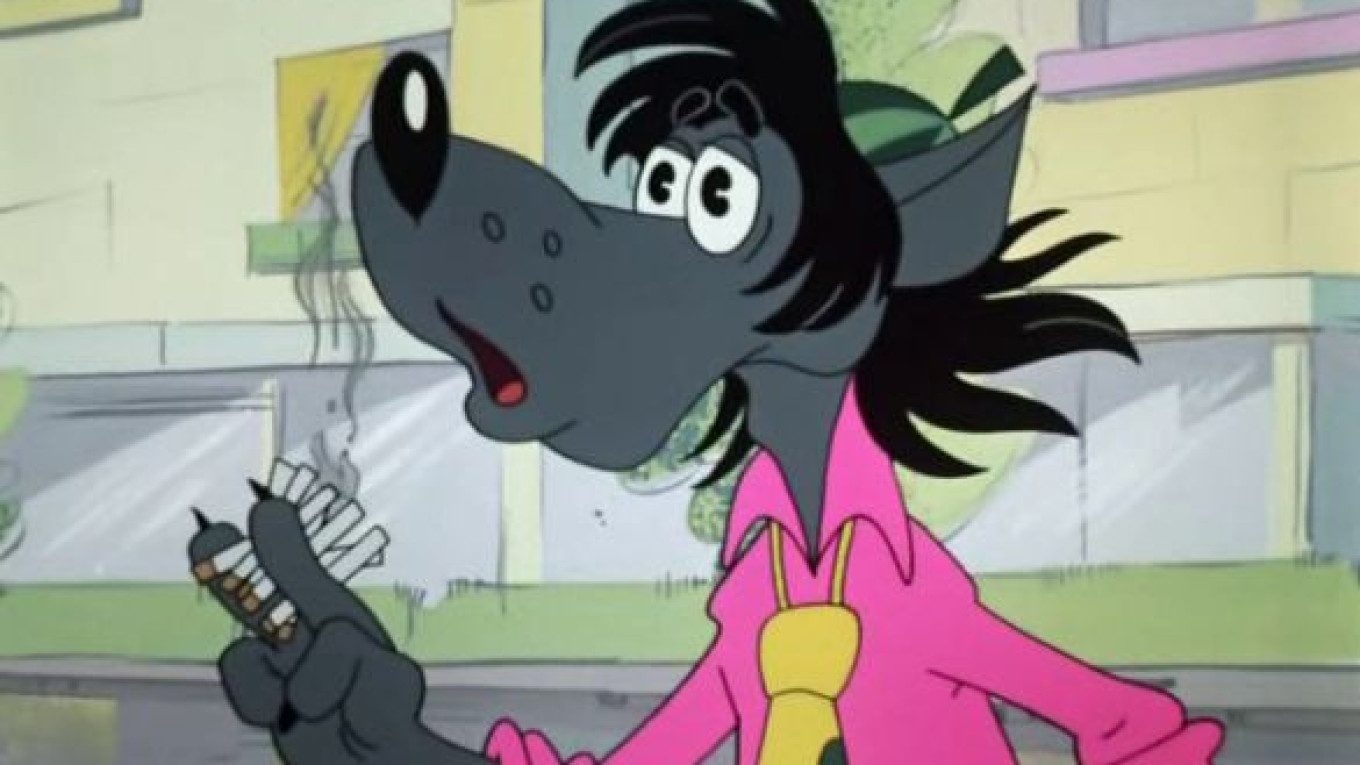Lovers of Soviet-era cartoons were sent into a tizzy Wednesday after reports surfaced that the classic “Nu, Pogodi” and “Cheburashka” programs could be edited to remove smoking scenes.
Broadcasters fear that two heavy-smoking characters in the shows could run afoul of a new law designed to protect children from exposure to drinking, drugs and other vices.
Alexei Kotyonochkin, who directed two recent episodes of “Nu, Pogodi” (“Well, Just You Wait!”) and is the son of the show's creator, denounced the idea of re-editing the series.
“I don't like all these attempts to 'edit' or 'regulate' our cultural heritage, which undoubtedly includes 'Nu, Pogodi!'” he said in e-mailed comments.
He also suggested that the new law signaled the end of an era.
“Well, Wolf, you old smoker, goodbye. … You lived a worthy life, 40-plus years. Millions of children laughed thanks to you. You brought smiles and joy,” he wrote on his LiveJournal blog earlier this month.
An unidentified person at TMK-Media, which owns the rights to “Nu, Pogodi,” told Interfax on Wednesday that the scenes in which the character Wolf smokes would have to be cut or else the cartoon would qualify as “adult programming,” which can be shown only after 11 p.m. under the law.
But others were less certain about how the new rules, which go into effect Saturday, would affect the much-loved children's programs.
An official at VGTRK said the state-run media holding hadn't made a decision about when to broadcast “Nu, Pogodi,” and the deputy director of the Federal Mass Media Inspection Service suggested that the show might be exempt on account of its cultural value, RIA-Novosti reported.
“Nu, Pogodi,” created in 1969, centers on Wolf's hilarious pursuit of Hare, much like Tom chasing Jerry in the popular Western series. “Cheburashka” features a smoking crocodile named Gena.
Some looked to score political points. A popular opposition Facebook group circulated an image of Wolf smoking accompanied by a caption that read, “A postcard to Putin's bloody censor.”
Where some saw the creeping influence of the vice police, others saw an important public health measure in a country strongly addicted to cigarettes.
According to the World Health Organization, 39 percent of Russian adults smoke, and tobacco-related diseases annually take the lives of 350,000 to 400,000 people.
Images of smoking certainly don't help the nation's health, Natalya Toropova, program coordinator for the WHO's Tobacco Control program in Moscow, said in e-mailed comments.
“International practice shows that similar norms do not cause any trouble and are well-accepted in countries with strong anti-tobacco legislation,” she said.
The new regulations, approved in early 2011, introduce age-appropriate rankings for TV programs.
Related articles:
A Message from The Moscow Times:
Dear readers,
We are facing unprecedented challenges. Russia's Prosecutor General's Office has designated The Moscow Times as an "undesirable" organization, criminalizing our work and putting our staff at risk of prosecution. This follows our earlier unjust labeling as a "foreign agent."
These actions are direct attempts to silence independent journalism in Russia. The authorities claim our work "discredits the decisions of the Russian leadership." We see things differently: we strive to provide accurate, unbiased reporting on Russia.
We, the journalists of The Moscow Times, refuse to be silenced. But to continue our work, we need your help.
Your support, no matter how small, makes a world of difference. If you can, please support us monthly starting from just $2. It's quick to set up, and every contribution makes a significant impact.
By supporting The Moscow Times, you're defending open, independent journalism in the face of repression. Thank you for standing with us.
Remind me later.


